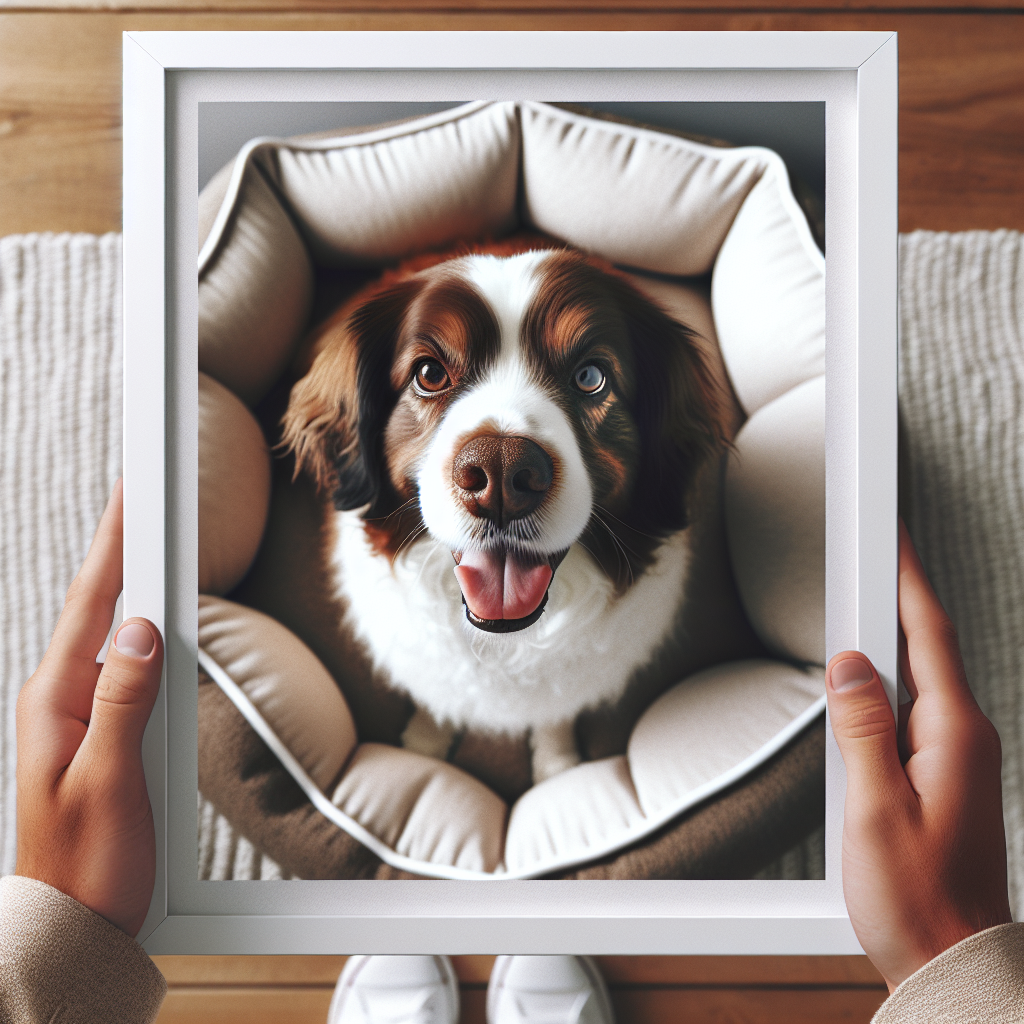
If you’re a dog owner, you know how much joy and happiness they bring to your life. But just like humans, dogs can also experience respiratory problems that can greatly affect their health and well-being. From allergies to infections, respiratory issues can be both distressing for your furry friend and worrisome for you. However, there are steps you can take to help prevent your dog from developing respiratory problems and ensure they lead a healthy and active life. In this article, we will explore some practical tips and advice to keep your dog’s respiratory system in top shape, allowing them to breathe easy and enjoy every moment by your side. Maintaining a Clean Environment
Keep the Living Space Clean
One of the first steps in preventing respiratory problems in your dog is to keep the living space clean. This includes regularly cleaning the floors, furniture, and any other surfaces that your dog comes into contact with. Dust, dirt, and other allergens can accumulate in the environment and contribute to respiratory issues. By regularly vacuuming, dusting, and mopping, you can help reduce the amount of irritants in the air.
In addition to cleaning the living space, it’s important to regularly wash your dog’s bedding. Just like humans, dogs can have allergies or sensitivities to certain materials, such as dust mites or pet dander. Washing your dog’s bedding with a hypoallergenic detergent can help remove any irritants and keep the bedding clean and fresh.
Regularly Clean the Dog’s Beddings and Toys
Along with cleaning the living space, it’s also crucial to regularly clean your dog’s beddings and toys. Beddings can trap allergens, such as pollen or mold spores, which can trigger respiratory issues in your dog. Washing your dog’s beddings in hot water can help remove these allergens and keep them clean.
Toys, especially plush toys, can also accumulate allergens and irritants over time. Regularly cleaning your dog’s toys by washing them or using pet-safe disinfectants can help maintain a clean environment for your furry friend.
Avoiding Exposure to Smoke and Pollution
Keep the Dog Away from Cigarette Smoke
Exposure to cigarette smoke can be extremely harmful to your dog’s respiratory system. It can lead to chronic obstructive pulmonary disease (COPD), bronchitis, and other respiratory problems. To protect your dog, it’s essential to keep them away from areas where smoke is present, whether it’s from cigarettes, cigars, or vaping devices.
If you or someone in your household smokes, consider smoking outside and away from your dog. The best way to minimize the risk of respiratory problems related to smoke is to quit smoking altogether. Not only will it benefit your dog, but it will also improve your overall health.
Minimize Exposure to Chemicals and Fumes
Chemicals and fumes from household cleaners, paints, and other substances can also be harmful to your dog’s respiratory health. When using these products, make sure to keep your dog in a well-ventilated area or in a different room to minimize their exposure. Open windows or turn on fans to help circulate the air and reduce the concentration of fumes.
Consider using pet-safe cleaning products that are specifically formulated to be non-toxic and less irritating to your dog’s respiratory system. These products are designed to be safer for pets while still effectively cleaning your home.
Preventing Respiratory Infections
Ensure Adequate Vaccination
Vaccinations are an essential part of preventing respiratory infections in dogs. Regularly vaccinating your dog can protect them against viruses and bacteria that can cause respiratory illnesses such as kennel cough or canine influenza. Make sure to follow your veterinarian’s recommended vaccination schedule to ensure your dog receives the necessary vaccines for optimal protection.
Practice Good Hygiene
Good hygiene is crucial in preventing the spread of respiratory infections. Wash your hands thoroughly before and after handling your dog, especially if you’ve been in contact with other dogs. This can help minimize the risk of transferring any potential respiratory pathogens to your dog.
Additionally, regularly clean your dog’s food and water bowls, as well as their bedding and toys. Bacteria and viruses can thrive in these areas, so proper cleaning and disinfection are essential. Use hot water and pet-safe cleaning products to ensure a thorough clean.
Avoid Contact with Sick Dogs
Just like humans, dogs can easily contract respiratory infections from other sick dogs. If you know that a dog in your neighborhood or at the dog park is sick, it’s best to avoid interactions between your dog and the sick dog. Respiratory infections can spread through close contact, sharing toys, or even simply being in the same environment.
Maintaining Proper Weight and Nutrition
Provide a Balanced and Nutritious Diet
Proper nutrition is key to maintaining a healthy respiratory system in dogs. Make sure to provide your dog with a balanced diet that includes all the essential nutrients they need. High-quality dog food that is formulated to meet your dog’s specific needs can help support their overall health, including their respiratory function.
If you have any concerns about your dog’s diet or are unsure about which food is best for them, consult with your veterinarian. They can provide guidance and recommend a diet that suits your dog’s specific needs and any potential respiratory conditions they may have.
Avoid Overfeeding
Obesity can put extra strain on your dog’s respiratory system and increase the risk of respiratory problems. It’s important to monitor your dog’s weight and ensure they maintain a healthy body condition. Avoid overfeeding and provide measured portions based on your dog’s size, age, and activity level.
If you’re unsure about the ideal weight for your dog or need help managing their diet, consult with your veterinarian. They can provide guidance on proper portion sizes and recommend a weight management plan if necessary.
Regular Exercise and Weight Management
Regular exercise is not only important for maintaining a healthy weight but also for promoting overall respiratory health. Physical activity helps strengthen the respiratory muscles and improves lung function. Take your dog for daily walks, engage in playtime, and provide ample opportunities for exercise.
However, it’s crucial to avoid excessive exercise, especially in dogs with pre-existing respiratory conditions or brachycephalic (short-nosed) breeds. These dogs may have respiratory limitations, and excessive exertion can lead to breathing difficulties or even respiratory distress. Consult with your veterinarian for guidance on appropriate exercise for your dog’s specific needs.
Managing Allergens
Identify and Minimize Allergens
Allergens such as pollen, mold spores, dust mites, and pet dander can trigger respiratory problems in dogs. Identifying and minimizing these allergens can help alleviate respiratory symptoms and improve your dog’s overall health.
Regularly vacuuming and dusting the living space, as mentioned earlier, can help reduce the amount of allergens in the environment. Additionally, consider using air purifiers or filters to further improve air quality. Avoid using scented candles, air fresheners, or other strong fragrances that can irritate your dog’s respiratory system.
Consider Allergy Testing and Immunotherapy
If your dog frequently experiences respiratory issues or allergy symptoms, consider consulting with a veterinarian who specializes in veterinary dermatology or allergies. They can perform allergy testing to identify specific allergens that may be triggering your dog’s respiratory problems. Based on the results, they can develop a personalized treatment plan, which may include allergen-specific immunotherapy.
Allergy shots, or immunotherapy, can help desensitize your dog’s immune system to common allergens and reduce their respiratory symptoms over time. Your veterinarian will guide you on the appropriate dosages and administration of allergy shots for your dog.
Avoiding Overexertion and Extreme Temperatures
Avoid Excessive Exercise
While regular exercise is important for maintaining respiratory health, it’s crucial to avoid excessive exercise, especially in extreme temperatures. Overexertion can put strain on your dog’s respiratory system and lead to breathing difficulties or heatstroke.
During hot weather, avoid exercising your dog during the hottest parts of the day. Opt for early morning or late evening walks when temperatures are lower. Monitor your dog for signs of overheating, such as excessive panting, drooling, or lethargy. Provide plenty of water and rest breaks to keep your dog cool and hydrated.
Protect the Dog from Extreme Temperatures
Extreme temperatures, both hot and cold, can have a negative impact on your dog’s respiratory health. Dogs with respiratory issues may be more susceptible to temperature-related complications. During cold weather, provide your dog with proper insulation, such as warm clothing or a dog jacket, to keep them comfortable. Limit their exposure to icy conditions and ensure they have a warm and sheltered space indoors.
In hot weather, keep your dog in a well-ventilated area with access to shade and fresh water. Avoid leaving them in a parked car, as temperatures can skyrocket within minutes, putting them at risk of heatstroke. If you must travel with your dog during hot weather, make sure the car is properly air-conditioned, and take frequent breaks to allow them to cool down and drink water.
Monitoring Breathing and Health
Regular Vet Check-ups
Regular veterinary check-ups are crucial for monitoring your dog’s respiratory health and overall well-being. During these visits, the veterinarian will listen to your dog’s breathing and check for any abnormalities or signs of respiratory issues. They may also recommend further tests or diagnostics if necessary.
Make sure to schedule regular vaccinations, deworming, and other preventive care measures as recommended by your veterinarian. This can help prevent respiratory infections and catch any potential health concerns early on.
Observe and Report Abnormal Breathing Patterns
As a pet owner, it’s important to be observant of your dog’s breathing patterns and report any abnormalities to your veterinarian. Signs of respiratory problems may include excessive panting, wheezing, coughing, snoring, or rapid and shallow breathing. These symptoms could indicate an underlying respiratory condition that requires medical attention.
If you notice any changes in your dog’s breathing or respiratory health, don’t hesitate to reach out to your veterinarian. They can provide a thorough examination and recommend appropriate treatment or interventions.
Preventing Heartworm Infection
Administer Heartworm Preventives
Heartworm disease is a serious and potentially life-threatening condition that affects dogs. It is transmitted through mosquito bites, making it crucial to protect your dog from these pesky insects. Administering monthly heartworm preventives, as recommended by your veterinarian, is essential in preventing heartworm infection.
Heartworm preventives not only protect against heartworm disease but also often have additional benefits, such as protection against intestinal parasites. Make sure to follow the recommended dosage and administration instructions provided by your veterinarian.
Avoid Exposure to Mosquitoes
In addition to administering heartworm preventives, it’s important to minimize your dog’s exposure to mosquitoes. Mosquitoes are most active during dawn and dusk, so consider keeping your dog indoors during these times or in a properly screened-in area.
Remove any potential mosquito breeding grounds around your home, such as standing water in buckets or flower pots. You can also use dog-safe mosquito repellents or insecticides to further reduce the risk of mosquito bites.
Minimizing Stress and Anxiety
Provide a Safe and Calm Environment
Stress and anxiety can negatively impact your dog’s respiratory health. Creating a safe and calm environment for your dog can help reduce stress levels and promote better respiratory function. Ensure that your dog has a designated space where they feel safe and comfortable, such as a crate or a cozy bed.
Use Behavior Modification Techniques
If your dog experiences chronic stress or anxiety, consider working with a professional dog trainer or behaviorist. They can help identify the underlying causes of your dog’s stress and develop behavior modification techniques tailored to their needs. These techniques can help reduce anxiety and promote overall well-being, which can have a positive impact on your dog’s respiratory health.
Avoiding Irritants and Toxins
Keep Harmful Substances Out of Reach
Many substances commonly found in households can be toxic to dogs and cause respiratory issues if ingested or inhaled. It’s important to keep harmful substances, such as cleaning products, medications, and certain plants, out of your dog’s reach. Store these items in secure cabinets or high shelves to prevent accidental ingestion or exposure.
Use Pet-Safe Cleaning Products
When cleaning your home, opt for pet-safe cleaning products that are specifically formulated to be non-toxic. Harsh chemicals and fumes from conventional cleaning products can irritate your dog’s respiratory system and pose a risk to their health. Choose products that are labeled as pet-friendly and follow the usage instructions carefully.
By following these guidelines and providing a clean, safe, and well-monitored environment for your dog, you can greatly reduce the risk of respiratory problems. Remember to consult with your veterinarian for personalized advice and recommendations based on your dog’s specific needs. With proper care and attention, you can help your furry friend breathe easy and live a healthy, happy life.

